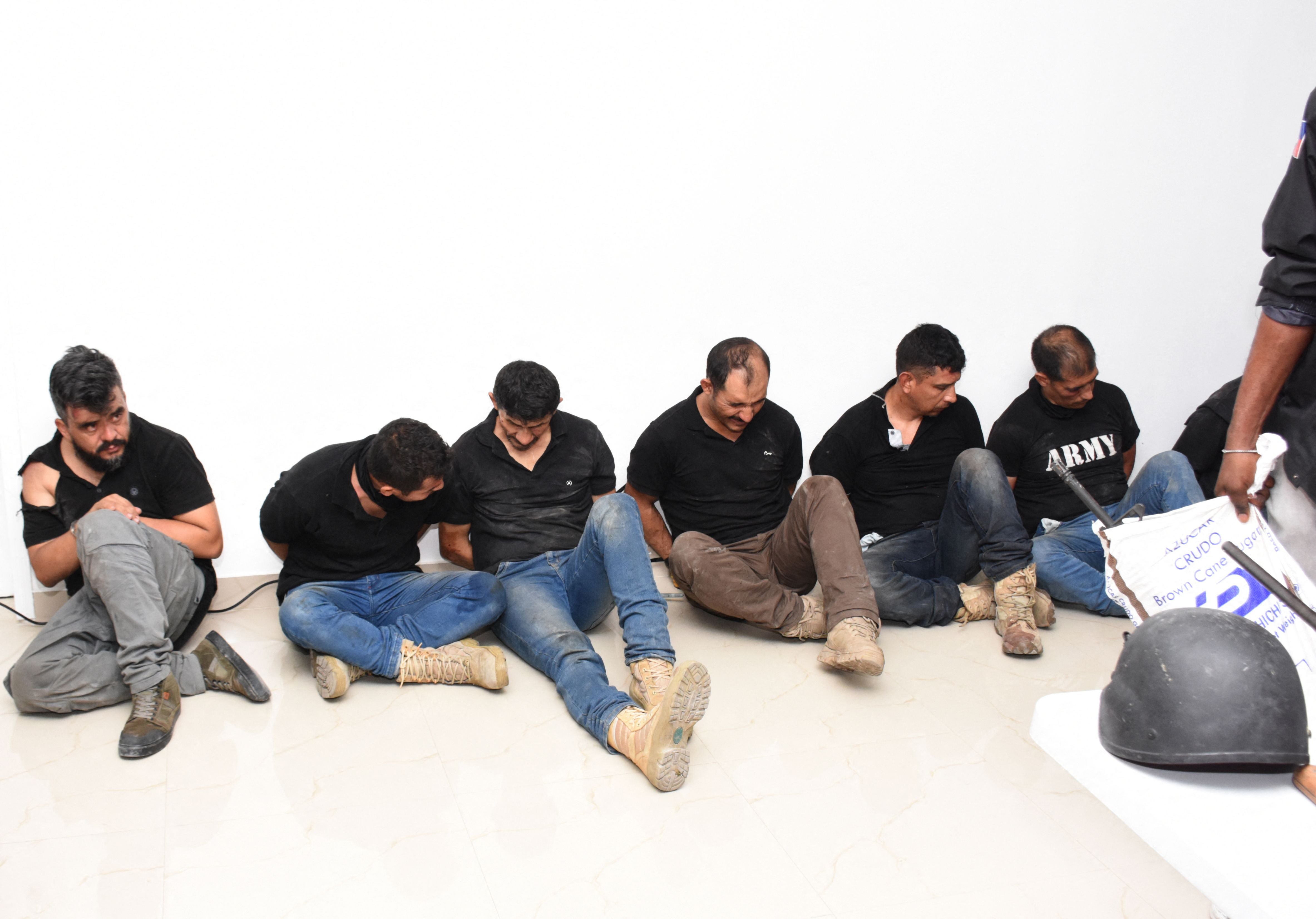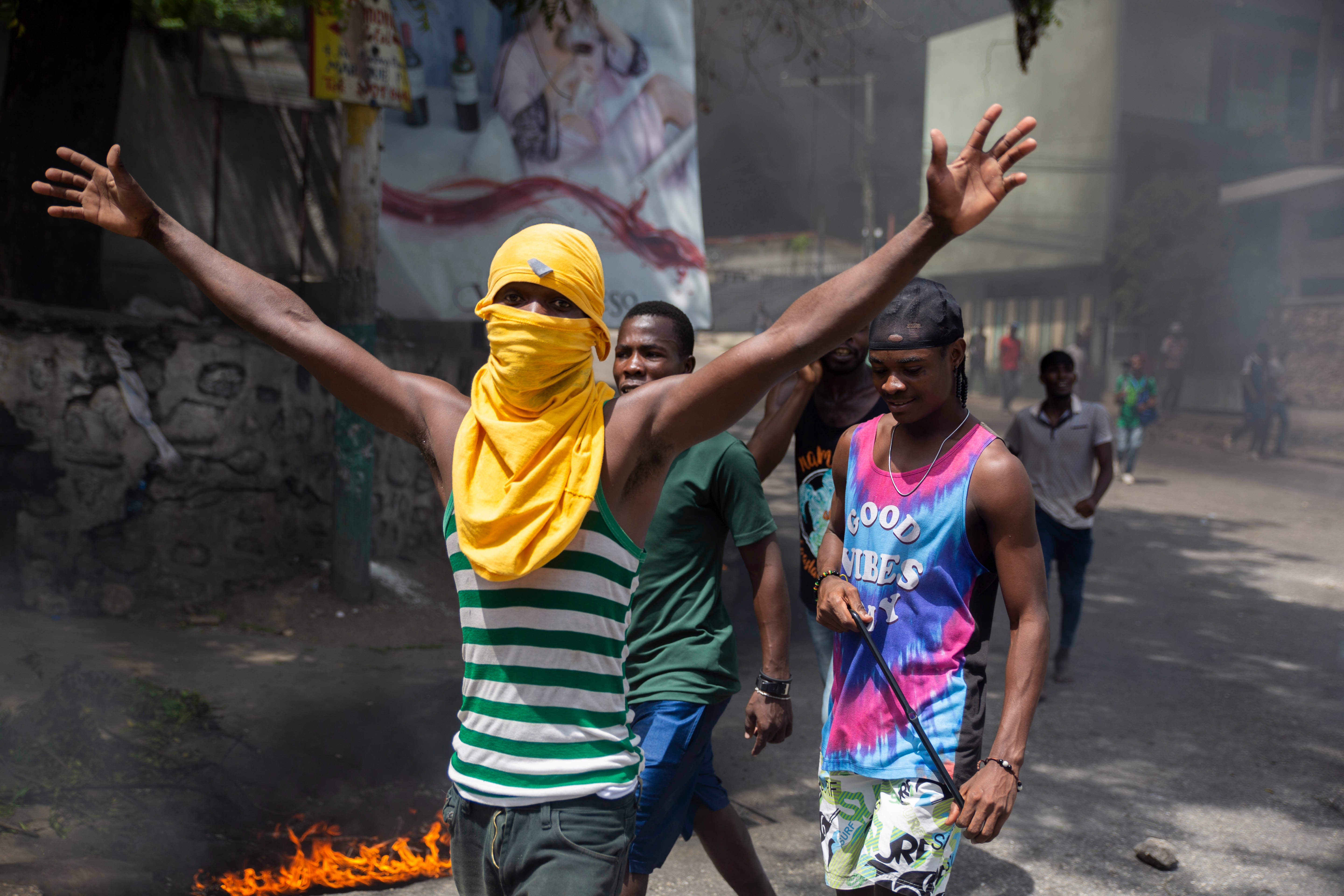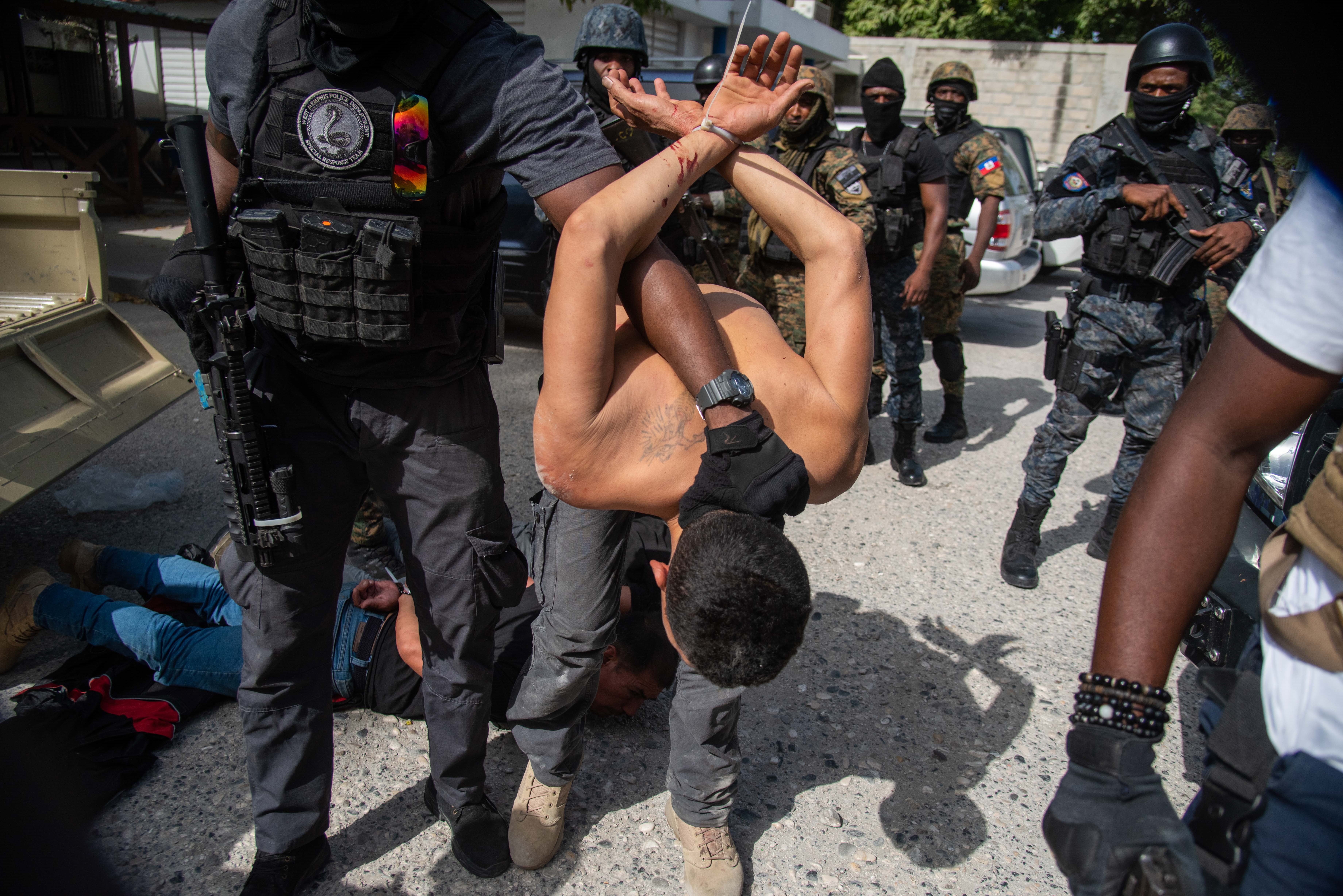Haiti looks for ‘intellectual authors’ of president’s assassination
Officials say they are convinced of an international conspiracy behind the death, reports Diplomatic Editor Kim Sengupta


Your support helps us to tell the story
From reproductive rights to climate change to Big Tech, The Independent is on the ground when the story is developing. Whether it's investigating the financials of Elon Musk's pro-Trump PAC or producing our latest documentary, 'The A Word', which shines a light on the American women fighting for reproductive rights, we know how important it is to parse out the facts from the messaging.
At such a critical moment in US history, we need reporters on the ground. Your donation allows us to keep sending journalists to speak to both sides of the story.
The Independent is trusted by Americans across the entire political spectrum. And unlike many other quality news outlets, we choose not to lock Americans out of our reporting and analysis with paywalls. We believe quality journalism should be available to everyone, paid for by those who can afford it.
Your support makes all the difference.“Foreigners came to our country to kill the president,” declared Haiti’s chief of police, as 17 suspects were paraded in front of a display of assault rifles, walkie-talkies, machetes, sledgehammers and boltcutters two days after the assassination of the country’s leader.
“There were 26 Colombians, identified by their passports, and two Haitian Americans as well,” said Charles Leon. “We have the physical authors; now we are looking for the intellectual authors, and we shall find them.”
The hunt for the “intellectual authors” behind the hit-team who shot down Jovenel Moise, injuring his wife Martine, draws upon a cast including foreign mercenaries, exiled oligarchs, and the US, Colombian and Canadian governments.
Haitian officials say they are convinced of an international conspiracy behind the death, which was part of an attempted coup, and that an investigation will expose the role of powerful vested interests.
Bocchit Edmond, the Haitian ambassador to Washington, said that all the evidence pointed to the assault having been carried out by a “well-trained group of foreign mercenaries and killers”. He has asked the US administration for help with the investigation.
The Haitian government has declared a “state of siege”, imposing martial law. The poorest country in the Americas, with endemic problems, shattered by a devastating earthquake just over a decade ago and facing a Covid epidemic now, was already experiencing street protests and a political crisis.
Opposition parties have claimed that Mr Moise should have stepped down in February, five years after the last election. But he and his supporters hold that his term in office did not end until 2022, as there had been an interim president for a year between him and his predecessor.

Now Haiti has become the setting for an extraordinary and violent drama, with mobs in the streets and firefights in the aftermath of the killing. Three of the alleged plotters have been killed, while eight more are on the run.
Other states are being drawn into rapidly spreading theories about what, and who, lay behind the attack.
According to one account, a prominent former US special forces officer, long established in the private security field, played a key part in the assassination. His associates, however, categorically deny that either he or they were involved – and indeed, there is no evidence of any links between them and the assassination or the coup plot.
The fleeing hit-team had taken refuge in the Taiwanese embassy when they were tracked down by security forces and arrested. There is no suggestion that the Taiwanese government was involved in any way in the events that took place, but this has added another strand to the “international dimension”.
Among those arrested over the murder are two American nationals of Haitian background, named as James Solages, 35, and 55-year-old Joseph Vincent.
In an online profile, Mr Solages, a Florida resident, said he was a “certified diplomatic agent” who had worked as a bodyguard at the Canadian embassy in Haiti. A Canadian government official said that Mr Solages was briefly employed as a reserve bodyguard by a security company hired by the foreign affairs ministry 11 years ago.
American and Canadian authorities say they will investigate any connection between their countries and the assassination.
The men who carried out the attack were heard in a video shouting, “This is a DEA operation! Everybody, don’t shoot!” in English and then in Creole.
Some of those accused of carrying out the assault are former members of the Colombian armed forces. The US Drug Enforcement Administration (DEA) has been extensively involved on the ground in Colombia in missions against drug kingpins including Pablo Escobar and Jorge Ochoa.
US intelligence agencies, including the CIA, have been active in the conflict against left-wing FARC guerrillas, during which they were accused of running death squads. Colombia also took part in destabilisation operations against the Sandinista government in Nicaragua.
The DEA has an office in Port-au-Prince, “to develop and strengthen its counter-narcotics law enforcement programme”, according to the US embassy. But Mr Edmond was among Haitian officials who strongly denied that the agency was involved in the raid. “No way they were DEA agents,” he said.
In Bogota, the Colombian defence minister, Diego Molano, confirmed that suspects from his country were retired members of the military. The Colombian government, he said, would cooperate with the investigation, having been contacted by Interpol.
Last year, the Venezuelan government accused the US and Colombia of attempting a raid to seize Caracas airport and capture president Nicolas Maduro. The discovery of three abandoned Colombian navy boats armed with machine guns was cited as evidence, along with an interrogation video of a former US soldier, Luke Denman, in which he said he had been hired to train dissident Venezuelan troops in Colombia.

The Colombian and US governments denied the Venezuelan allegations.
While Maduro and his radical government had been targeted by the Trump administration, and have been locked in confrontation with Colombia, there are no such issues with Mr Moise.
Nevertheless, the focus on a “foreign hand” continues in Haiti. The interim prime minister Claude Joseph said a group from abroad had entered the country to kill the president “in a cowardly fashion”.
Mr Joseph, who is facing domestic political challenges, added: “You may kill the president, but you cannot kill his dreams, you cannot kill his ideology, and you cannot kill what he was fighting for. That’s why I’m determined for President Jovenel Moise’s family, friends and allies, and the Haitian population, to get justice.”
Join our commenting forum
Join thought-provoking conversations, follow other Independent readers and see their replies
Comments